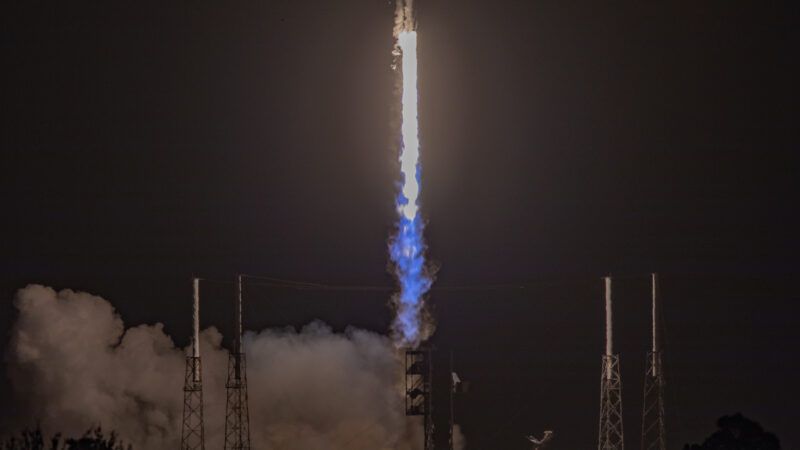First-Ever Commercial Space Walk Delayed After Overcautious FAA Grounds SpaceX Rocket
The Federal Aviation Administration has called an unnecessary halt on launches following the Falcon 9 mishap on August 28.

The launch of the private Polaris Dawn mission, originally slated for 3:38 a.m. on Saturday, is now listed as "TBD" by NASA's Kennedy Space Center. Commanded by entrepreneur and pilot Jared Isaacman, the mission was set to include the first-ever commercial extravehicular activity (EVA), debut SpaceX's new spacesuits, and aim for "the highest altitude of any human spaceflight mission since the Apollo program." But the Federal Aviation Administration (FAA) has grounded the flight, along with all other launches involving SpaceX's Falcon 9 rocket.
The decision came after SpaceX reported that the first-stage booster of another Falcon 9 "tipped over following touchdown on the A Shortfall of Gravitas drone ship," after successfully deploying 21 Starlink satellites on August 28. This was SpaceX's 377th launch and 311th reflight, but it can't claim to be its 342nd landing. To date, SpaceX has safely transported "50 crewmembers to and from Earth's orbit" over the course of 13 manned missions. At the time of writing, SpaceX's official X account had not issued any additional comment on the incident or investigation.
The FAA says the goal of the pause is "to further enhance public safety, determine the root cause of the event, and identify corrective actions to avoid it from happening again." The invocation of public safety is something of a stretch in this case. The Associated Press reports that there were "no injuries or public damage" from the incident, noting that the booster toppling over was "the first such accident in years." It remains unclear what the FAA expects to uncover in its investigation that SpaceX itself isn't already committed to turning up.
No party is more interested in determining and correcting the root cause of the event than SpaceX. The firm stands to lose approximately $21 million in equipment each time a booster is unrecoverable, in addition to lost revenue on future missions. Each Falcon 9 rocket launch earns the company around $60 million.
Isaacman is the CEO of Shift4 Payments and co-founder of Draken International, the world's largest private air force. Isaacman is an experienced aviator who flies with the Black Diamond Jet Team, a civilian aerobatic display team, and served as commander of SpaceX's Inspiration4, the first all-civilian orbital space mission. The Polaris Dawn crew also includes Anna Menon, mission specialist and medical officer; Sarah Gillis, mission specialist; and Scott Poteet, mission pilot. If SpaceX is confident in its Falcon 9 rocket, the highly trained astronauts of Polaris Dawn are comfortable boarding it, and Isaacman is willing to foot the bill, the FAA shouldn't stand in their way.
The Kennedy Space Center still lists the launch date for NASA's Crew-9 mission to the International Space Station as September 24. With the FAA's meddling already delaying one mission, it remains to be seen whether it will delay another.


Show Comments (100)